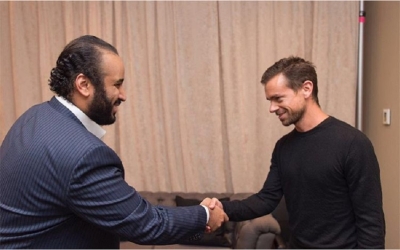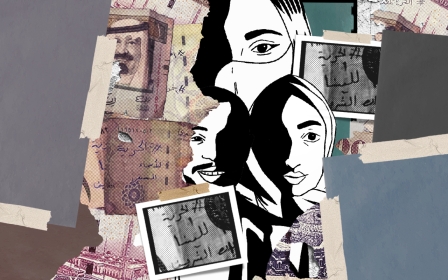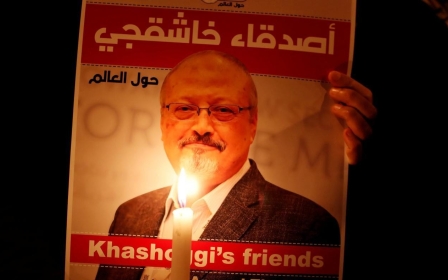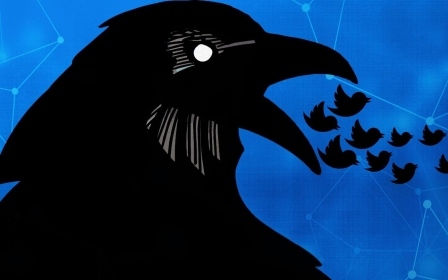Saudi Arabia: Rights groups call on X to protect users after man's death sentence
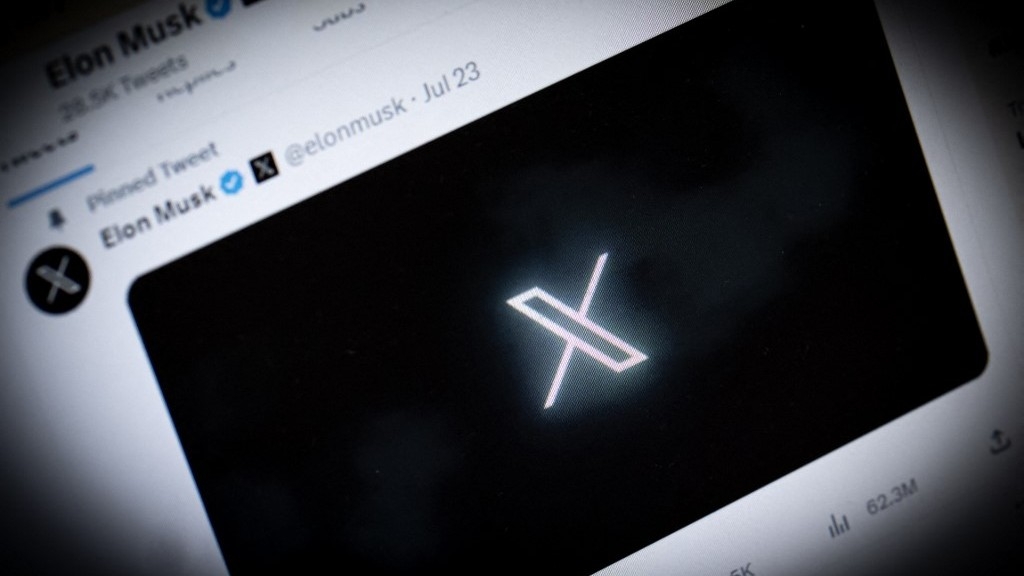
More than a dozen rights groups have called on X to ensure the safety of its users, weeks after a Saudi Arabian man was sentenced to death over anonymous social media posts, the latest extreme sentence in the kingdom's ongoing crackdown.
The open letter, released on Friday, comes as a US civil lawsuit against the company formerly known as Twitter, and the firm's self-reported data since Elon Musk took over, have raised new questions about how safe its users are in Saudi Arabia.
The groups have urged Musk to "take all possible measures" to protect users through strengthening privacy and safety measures on the platform and refraining from handing users' personal information to Saudi authorities.
"Twitter, now X, has increasingly become an unsafe space for activists and dissidents, yet many remain dependent on it," said Marwa Fatafta, lead on digital rights in the Middle East and North Africa for Access Now, one of the signatories.
"Self-proclaimed defender of free speech, Elon Musk must understand the potential repercussions of his decisions and policies on people’s lives, and take urgent steps to ensure people’s privacy and safety on the platform," said Fatafta.
New MEE newsletter: Jerusalem Dispatch
Sign up to get the latest insights and analysis on Israel-Palestine, alongside Turkey Unpacked and other MEE newsletters
In July, a Saudi Arabian Specialised Criminal Court sentenced Mohammed al-Ghamdi, a retired teacher and brother of a prominent government critic, to death over posts his supporters say he made anonymously on Twitter and YouTube to a handful of followers.
It is the first ever death sentence handed down solely for social media activity, and came after life sentences and travel bans given to Saudis, some of whom were posting anonymously, over the past year.
Among those given lengthy sentences include:
Salma al-Shehab, a Leeds University doctoral candidate, given 34 years and a 34-year travel ban, later amended to 27 years each, for her tweets.
Nourah al-Qahtani, a mother of five, sentenced to 45 years over tweets from two anonymous accounts.
Abdullah Jelan, a university graduate who dreamed of becoming a health educator for the Saudi government, was sentenced to 10 years in prison and a 10-year travel ban, over anonymous tweets focused largely on unemployment.
Fatima al-Shawarbi was sentenced to 30 years, plus a travel ban for 30 years and six months, for anonymous tweets about political prisoners, women's rights and unemployment.
Unsafe space
In the open letter, the organisations said that the internet was once widely perceived as a place for people in Saudi Arabia to share opinions "they never dared express in the real world", but that is no longer the case.
"It has become clear the Saudi authorities will not tolerate free speech online, and many activists have been prosecuted under the draconian Anti-Cybercrime and Counter-Terrorism Laws for posting tweets critical of the Saudi authorities," they wrote.
"As a result, more and more Saudis either self-censor or tweet anonymously using aliases, but evidence suggests that even then they may not be safe."
The groups cite the case of Saudi aid worker Abdulrahman al-Sadhan, whose private data is among those of 6,000 Twitter users believed to have been shared by two former Twitter employees who were charged in the US with spying for Saudi authorities.
Sadhan had been using political satire and humour anonymously on Twitter to draw attention to issues in the kingdom, including unemployment and taxation without representation, and calling for democracy.
Sadhan was arrested in 2018 and held in a secret prison where he was brutally flogged and tortured with electric shocks. He was sentenced in 2021 to 20 years in prison and a 20-year travel ban. His family have not heard from him since.
Last year, Areej al-Sadhan, Abdulrahman's sister, brought a civil lawsuit in the US against Twitter. In an updated claim submitted in August, Sadhan's lawyers have said the company under the leader of then-CEO Jack Dorsey either knew or deliberately ignored how Saudi authorities were accessing user data for the purpose of repression.
The groups that signed Friday's letter say they are concerned that, under Musk, the company's self-reported data shows that it is complying with the majority of requests from governments for censorship or surveillance.
Josh Cooper, deputy executive director of the UK-based Alqst, one of the letter's signatories, said that his organisation doesn't have evidence that the user data of those sentenced over the past year for anonymous tweets were shared by the company with Saudi officials, as Sadhan's are alleged to have been.
How Saudi officials were able to identify those individuals, including Ghamdi and Jelan, remains an open question, he said.
X no longer responds to questions from journalists.
Middle East Eye delivers independent and unrivalled coverage and analysis of the Middle East, North Africa and beyond. To learn more about republishing this content and the associated fees, please fill out this form. More about MEE can be found here.


